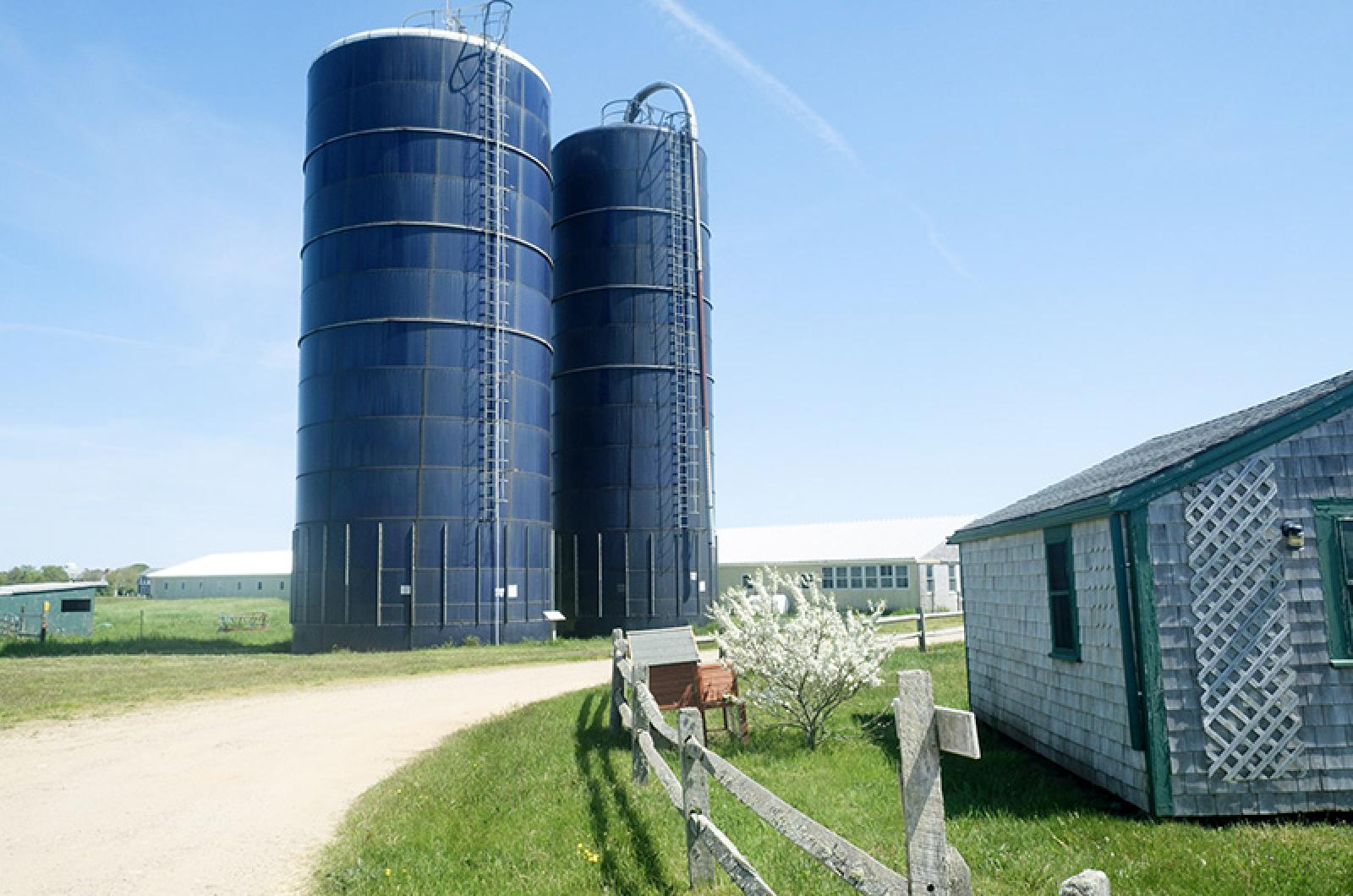Capping a nearly year-long saga, the Edgartown conservation commission voted unanimously Wednesday to grant separate leases to Morning Glory Farm and the Trustees of Reservations to run the historic Katama Farm.
The Trustees will operate camps and classes as part of educational programming at the farm, while Morning Glory will take over agricultural operations at the 180-acre working farm situated on the sweeping Katama plains in the outskirts of Edgartown.
According to proposals submitted to the conservation commission, the Trustees will team up with Slough Farm for educational programming, while Morning Glory will collaborate with Grey Barn farm in Chilmark.
The decision to split the farming and educational components of the property came after the conservation commission terminated its lease with the Trustees in early August last year. The termination and eviction notice followed months of tension between the town and the Trustees over whether the property was being properly maintained as a working farm.
This month the office of the state attorney general ruled that the conservation commission had violated the open meeting law when it met in executive session to discuss the lease termination, and ordered the commission to release minutes from the closed-door meetings.
The conservation commission is the landlord for the century-old farm.
After the eviction notice, the conservation commission appointed a stewardship group that met for six months to discuss the future of the farm. It was ultimately decided to solicit separate proposals for the educational and farming aspects of the property.
But with the selection of Morning Glory, a 65-acre working farm based in Edgartown owned by the Athearn family, and the decision to allow the Trustees to continue educational programming, the conservation commission appears to have mended its fences and come full circle.
“It looks like it all worked out for the best in the long run,” said conservation commission chairman Edward (Peter) Vincent after the vote was taken Wednesday, a recording of the meeting shows.
At the outset commissioner Geoffrey Kontje explained the commission’s hopes for the new tenants.
“Everybody agrees that what we are trying to do out there is build the fertility of the soil,” he said. “And also, to give the public a chance to see a farm right in the middle of Katama.”
Along with proposals from Morning Glory and Grey Barn, the commission received a proposal for a hops farm and microbrewery, as well as a separate proposal from Darcie Lee Hanaway, who submitted a combined farming and educational proposal. The Trustees submitted only an educational proposal.
“The five proposals that we got back were incredibly well thought out, and a huge amount of time and effort was put into each one,” Mr. Kontje said. “It was pretty impressive.”
The proposals were scored after a presentation and interview, as well as an evaluation of seven different categories, ranging from the experience of the proposer to the appropriateness of the suggested use. Morning Glory received a score of 96 out of 100 and Grey Barn received an 86, while other farming proposals hovered around 50, Mr. Kontje said.
The Trustees received a 95 out of 100 for their educational proposal, which will include collaboration with Slough Farm.
The leases for Morning Glory and the Trustees will have subletting clauses to allow for the proposed partnerships.
The educational lease includes 30 acres of land and most of the buildings, including the horse barn and Friendship Garden, while the farmer will take control of about 130 acres south of Aero avenue, and the cow barn.
At the meeting Wednesday, Morning Glory Farm patriarch Jim Athearn expressed excitement about the prospects at Katama Farm.
“I want to thank everyone for taking care of this farm, and for giving us the vote of confidence,” Mr. Athearn said.
And with summer fast approaching, Julie Scott of Slough Farm asked when the new four-legged tenants could move in.
“I’m just wondering when we can get animals out there?” Ms. Scott asked. “The grass is waiting.”
“As soon as humanly possible,” conservation agent Jane Varkonda replied.







Comments (6)
Comments
Comment policy »